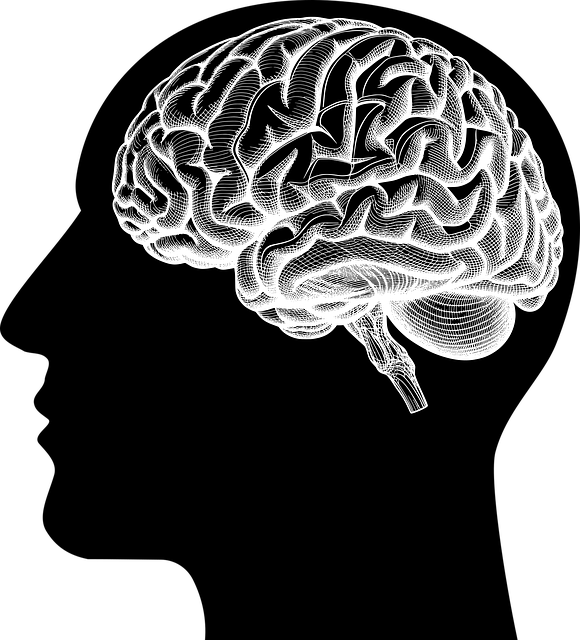Aurora Bilingual Therapy offers a revolutionary, data-driven approach to mental health care. Therapists analyze client data, including language patterns and psychological profiles, to develop personalized therapy plans. They utilize various techniques such as Self-Awareness Exercises, Social Skills Training, and Trauma Support Services to empower clients with coping strategies. This evidence-based model respects cultural diversity and ensures strategic interventions aligned with evolving well-being goals, while also emphasizing the ethical handling of data in an increasingly digital mental health landscape.
Mental health data analysis has emerged as a powerful tool, offering valuable insights into patient well-being. This article explores the intricacies of interpreting mental health data, highlighting key strategies and innovative approaches like Aurora Bilingual Therapy. We delve into how advanced analysis can unlock hidden patterns, inform personalized treatment plans, and ultimately enhance patient outcomes. From understanding data fundamentals to addressing ethical considerations, this guide navigates the landscape of modern mental health care.
- Understanding Mental Health Data: The Foundation of Effective Therapy
- Aurora Bilingual Therapy: Unlocking Insights through Advanced Analysis
- Interpreting Results: Strategies for Enhancing Patient Care
- Ethical Considerations and Future Directions in Mental Health Data Analysis
Understanding Mental Health Data: The Foundation of Effective Therapy

Understanding Mental Health Data is the cornerstone upon which effective therapy and personalized treatment plans are built. At Aurora Bilingual Therapy, we recognize that each individual’s mental health journey is unique, shaped by a complex interplay of genetic, environmental, and social factors. Our therapists meticulously gather and analyze data from various sources, including self-reported surveys, clinical observations, and performance metrics, to gain deep insights into our clients’ psychological landscapes.
This process involves assessing not only symptoms but also emotional resilience, coping mechanisms, and areas of growth potential. By integrating Self-Awareness Exercises, Social Skills Training, and Conflict Resolution Techniques tailored to each client’s needs, we aim to empower them with the tools necessary to navigate their mental health challenges effectively. Through data-driven insights, Aurora Bilingual Therapy ensures that every intervention is strategic, measured, and aligned with our clients’ evolving goals for improved well-being.
Aurora Bilingual Therapy: Unlocking Insights through Advanced Analysis

Aurora Bilingual Therapy stands as a beacon in mental health support, harnessing the power of advanced data analysis to unlock profound insights. This innovative approach transcends traditional therapy methods by delving into the intricate relationship between language, cognition, and emotional well-being. Through sophisticated analytics, therapists at Aurora can identify subtle patterns and trends within an individual’s linguistic expression, offering a nuanced understanding of their mental state.
The process involves a multi-faceted strategy, including Social Skills Training to enhance communication, Mind Over Matter Principles to foster self-awareness, and Mental Wellness Journaling Exercise Guidance to capture and analyze personal reflections. By combining these techniques with advanced data analysis, Aurora Bilingual Therapy provides a comprehensive framework for personalized care, ensuring that each client receives tailored support to navigate their mental health journey effectively.
Interpreting Results: Strategies for Enhancing Patient Care

When interpreting mental health data, especially within the context of diverse populations like those served by Aurora Bilingual Therapy, therapists must employ strategic approaches to enhance patient care. One key strategy involves contextualizing findings, considering cultural nuances and linguistic barriers that might influence outcomes. For instance, understanding a patient’s linguistic background and using appropriate communication strategies can ensure accurate data collection and interpretation. This personalized approach facilitates better comprehension of the patient’s experience and needs.
Additionally, integrating evidence-based practices such as Trauma Support Services and leveraging Mind Over Matter principles can enrich data analysis. Therapists can identify underlying trauma or cognitive patterns by applying these principles, leading to more targeted interventions. By combining robust data interpretation with compassionate communication, mental health professionals at Aurora Bilingual Therapy can deliver tailored care that respects individual differences and promotes positive outcomes for all patients.
Ethical Considerations and Future Directions in Mental Health Data Analysis

As mental health data analysis becomes increasingly sophisticated with advancements in technology, ethical considerations come to the forefront. The handling of sensitive information requires stringent privacy measures and informed consent from participants. Ensuring data security and anonymization is paramount to protect individuals’ identities, especially as digital platforms become more integrated into therapy and coaching programs like Aurora Bilingual Therapy. This includes developing robust systems to safeguard against unauthorized access and misuse of personal details.
Looking ahead, the future of mental health data analysis holds immense potential for personalized care. The integration of artificial intelligence and machine learning algorithms could lead to innovative Self-Awareness Exercises and Anxiety Relief tools. Moreover, it may facilitate the creation of tailored Mental Wellness Coaching Programs Development, offering targeted interventions based on individual needs. However, researchers and professionals must navigate these advancements responsibly, ensuring they contribute to improved outcomes while respecting ethical boundaries and promoting the well-being of those seeking mental health support.
Mental health data analysis plays a pivotal role in enhancing therapeutic outcomes. As highlighted by Aurora Bilingual Therapy, advanced analytical techniques can unlock profound insights into patient mental states and behaviors. By understanding this data effectively, therapists can tailor interventions precisely, ultimately improving patient care. Interpreting results ethically and considering future trends in mental health data analysis will ensure continued progress in this vital field.














